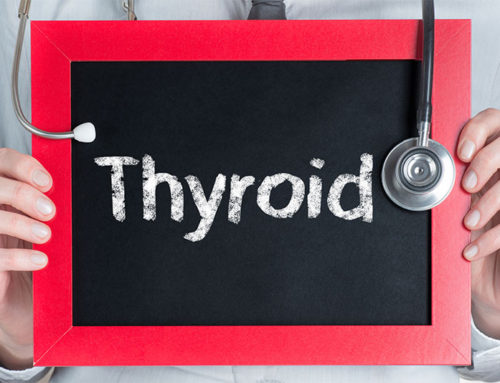If you are reading this right now, then the first thing you need to know about us is that we believe that  micronutrient deficiency is the most widespread and dangerous health condition of the 21st century. This is because medical and nutritional science has shown that nearly 100% of the American and UK populations are micronutrient deficient to some degree, and that deficiencies in your essential micronutrients (i.e. vitamins, minerals, EFAs and amino acids) are at the root of nearly every health condition and disease plaguing the world today, including obesity. This is why we wrote Naked Calories and Rich Food, Poor Food, to alert you to this silent pandemic and show you how to create a state of micronutrient sufficiency through Rich Food, lifestyle changes and smart supplementation so that you can achieve optimal health. And why we are so excited about our new book The Micronutrient Miracle 28 Day Plan, showing you how to implement our three steps to micronutrient sufficiency with daily menu plans and delicious Rich Food recipes.
micronutrient deficiency is the most widespread and dangerous health condition of the 21st century. This is because medical and nutritional science has shown that nearly 100% of the American and UK populations are micronutrient deficient to some degree, and that deficiencies in your essential micronutrients (i.e. vitamins, minerals, EFAs and amino acids) are at the root of nearly every health condition and disease plaguing the world today, including obesity. This is why we wrote Naked Calories and Rich Food, Poor Food, to alert you to this silent pandemic and show you how to create a state of micronutrient sufficiency through Rich Food, lifestyle changes and smart supplementation so that you can achieve optimal health. And why we are so excited about our new book The Micronutrient Miracle 28 Day Plan, showing you how to implement our three steps to micronutrient sufficiency with daily menu plans and delicious Rich Food recipes.
However, while we are the “micronutrient couple” and always tend to examine each health related problem from that perspective, the majority of medical and nutritional literature on obesity often focuses on factors other than micronutrients. So you can imagine how happy we were when we read a brand new 2015 study published in the Journal of the American College of Nutrition that was looking at the connection between obesity and micronutrient deficiency. At the conclusion of the study the researchers stated, “We conclude that obese adults compared to normal weight adults have lower micronutrient intake and higher prevalence of micronutrient inadequacy.” And went on to say, “It has been hypothesized that the micronutrient deficiencies may be contributing to obesity and fat deposition and could lead to further weight gain or development of associated metabolic diseases.
When you pair this study’s findings with the many other studies on the connection between overweight/obesity and micronutrient deficiency including the 2007 study published in the journal Economics and Human Biology, where researchers revealed that micronutrient deficient women had an 80.8% higher chance of being overweight or obese than non-deficient women, you can start to see how important micronutrient sufficiency may really be in our fight against obesity.
The fact is obesity affects many of us as well as our loved ones. What we can learn from those suffering from this condition may help us all better understand what truly lies at the root of this global pandemic. Our goal is rethink obesity altogether and to join the growing number of nutritional theorists and scientists who are thinking outside the box and connecting the dots between micronutrient deficiency and obesity in completely new ways. One of those people is Bruce N. Ames, Ph.D. Senior Scientist at the Children’s Hospital Oakland Research Institute Nutrition and Metabolism Center and Professor of the Graduate School, University of California–Berkeley, who in the quote below eloquently describes the biological strategy for micronutrient deficiency causing overeating and ultimately obesity.
“We hypothesize that a micronutrient deficiency counteracts the normal feeling of satiety [feeling full] after sufficient calories are eaten. This may be a biological strategy for obtaining missing nutrients, which is important in fertility. Thus part of the reason for the obesity epidemic may be that energy-dense, micronutrient-poor diets leave the consumer deficient in key micronutrients, e.g., calcium, and constantly hungry.”
The biggest problem with our current method of dealing with obesity is that most people don’t know that there are two types of hunger your body can experience?
Most of us are familiar with the first type of hunger, which occurs when you have not eaten enough food or have not eaten for a long period of time. Your body usually lets you know that you are experiencing this form of obvious hunger with stomach grumbling and hunger pangs.
The second type of hunger, which is the type Dr. Ames was referring to, is not so obvious; it is known as “hidden hunger,” and it occurs when you have not ingested enough essential micronutrients to meet your body’s minimum requirements. In the past, eating more food would alleviate both forms of hunger. That’s because the food of our ancestors delivered both caloric value and abundant micronutrient value. However, in modern times, simply eating more food will not necessarily reverse hidden hunger because many of today’s foods have become increasingly devoid of their essential vitamins and minerals.
In the end it all comes down to…micronutrients. Are you deficient in your essential micronutrients? Are you unknowingly opening the door to obesity or other unwanted health conditions or diseases in your life? We want to leave you with one last quote, but this time from us. We wrote it several years ago now (2010), but we feel that its insight into overweight/obesity is as valid today as it was then.
“If these contemporary theoretical perspectives were to be combined with current scientific research concerning the link between micronutrient deficiency and obesity, being overweight or obese would be viewed in an entirely different light. Instead of being wrongfully perceived as lazy, undisciplined overeaters, overweight and obese people would be seen for what they most likely are—individuals who are simply biochemically more in tune with their body’s need for their required essential micronutrients and are trying to achieve micronutrient sufficiency the only way that their bodies know how—by eating more food.”
Last but not least, don’t be discouraged if you are battling with obesity, take some time and think about the micronutrient deficiency connection. Perhaps the 3-step plan to micronutrient sufficiency that we outline in our new book The Micronutrient Miracle is just what you have been searching for!
Guest blog by Jayson Calton, PhD and Mira Calton, CN














Leave A Comment